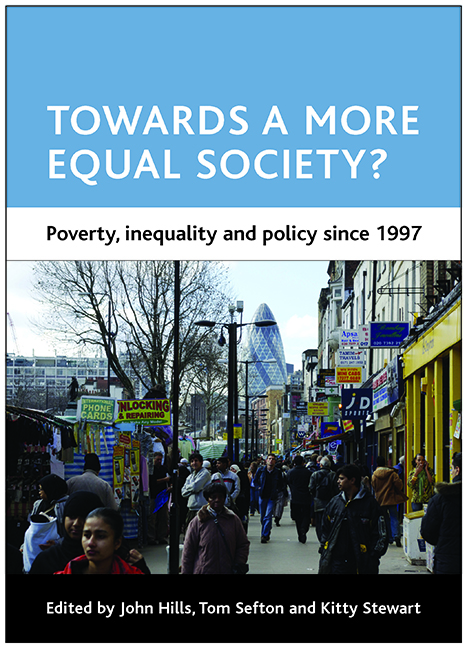sixteen - Conclusions: climbing every mountain or retreating from the foothills?
Published online by Cambridge University Press: 22 January 2022
Summary
Introduction
We started this book with a relatively simple question: had the New Labour government succeeded in making Britain a more equal society than when it took office in 1997? When we carried out a similar exercise four years ago (Hills and Stewart, 2005), one conclusion was that it was too early to tell: much of the evidence then available stopped early in the current decade, while many relevant policies had been introduced too recently to have taken full effect. The tide of rising inequality appeared to have turned, and policy to have contributed to turning that tide. There were, however, gaps in the scope of policy, and doubts about whether the scale of action matched the challenges. In summary, sustained efforts would be needed to make continued progress: policy makers still had mountains to climb.
The evidence now available allows a more considered assessment, but the chapters of this book have not presented a simple picture. What has happened varied between policy areas and over time within the last decade. This chapter attempts to bring these findings together. In carrying out this assessment, we are largely judging policy in its own terms, and often using the government's own criteria for how ‘equality’ should be measured in different dimensions. It should be recognised, however, that this begs a large number of fundamental questions, about both objectives and measurement (Equalities Review, 2007; Craig et al, 2008).
One striking background feature is that the decade from 1997 was in many ways very favourable to an egalitarian agenda: the economy grew continuously, with low rates of inflation helped by favourable world prices for imports bought by UK consumers, and a government was in power both with large majorities after each of the three General Elections in the period, and with expressed aspirations to creating a ‘more equal society’, at least in some terms. Writing in the autumn of 2008, none of these looks certain for the immediate future, to say the least, while the previous chapter identified factors that may make egalitarian outcomes harder to achieve over the medium term. The period surveyed may have been ‘as good as it gets’ for some time to come.
- Type
- Chapter
- Information
- Towards a More Equal Society?Poverty, Inequality and Policy since 1997, pp. 341 - 360Publisher: Bristol University PressPrint publication year: 2009

